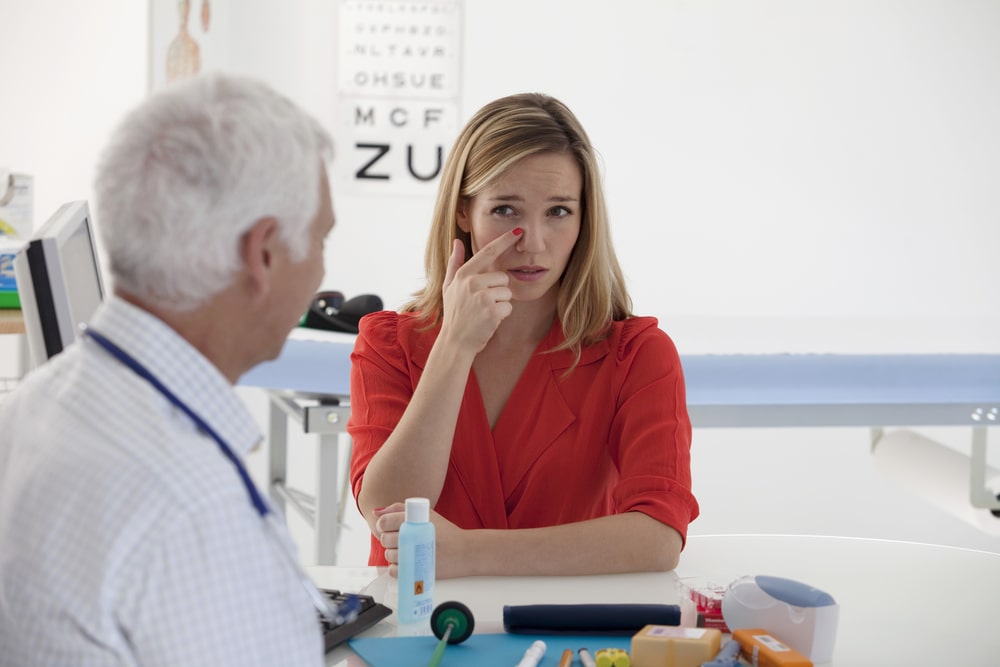A rhinologist is a medical professional with specialized expertise in the diagnosis, treatment, and management of conditions affecting the nose and sinuses. Rhinologists play a critical role in the field of rhinology, a subspecialty of otolaryngology (ear, nose, and throat medicine) dedicated to nasal and sinus health. Whether it’s a chronic sinus infection, structural nasal issues, or advanced conditions like nasal tumors, a rhinologist’s role is essential for patients seeking effective and specialized care.
What Does a Rhinologist Specialize In?
A rhinologist specializes in diagnosing and treating complex conditions related to the nose, sinuses, and surrounding structures. Their expertise goes beyond general ENT (ear, nose, and throat) care to address more advanced or chronic issues. Here are the key areas of specialization:
1. Chronic Sinusitis
One of the most common conditions a rhinologist treats is chronic sinusitis. This condition involves persistent inflammation or infection of the sinus cavities, often lasting for more than 12 weeks. Symptoms like nasal congestion, facial pain, and difficulty breathing can significantly affect quality of life. Rhinologists use advanced techniques such as imaging studies and nasal endoscopy to diagnose and create a personalized treatment plan.
2. Nasal Polyps
Nasal polyps are noncancerous growths in the nasal passages or sinuses that can obstruct airflow and lead to breathing difficulties. A rhinologist can recommend medical therapies or surgical interventions, such as functional endoscopic sinus surgery (FESS), to remove the polyps and restore normal nasal function.
3. Sinus Tumors and Cancer
Advanced cases involving tumors in the nasal or sinus regions require the expertise of a rhinologist. They collaborate with oncologists and other specialists to develop comprehensive treatment plans, including minimally invasive surgeries and targeted therapies.
What Is Rhinology?
Rhinology is the branch of medical science that focuses on the anatomy, function, and diseases of the nose and sinuses. It is a subspecialty of otolaryngology, requiring years of additional training and expertise.
Key Aspects of Rhinology
- Diagnosis and Imaging: Rhinology involves advanced diagnostic tools, including CT scans and nasal endoscopy, to get a detailed understanding of nasal and sinus conditions.
- Minimally Invasive Procedures: Rhinology emphasizes minimally invasive techniques, such as endoscopic surgeries, to reduce recovery time and improve outcomes.
- Research and Innovation: Rhinologists are at the forefront of developing new treatments and surgical techniques, making rhinology one of the most dynamic fields in medical science.
- Collaborative Approach: Rhinologists often work with allergists, pulmonologists, and neurologists to treat conditions that overlap with other medical disciplines.
What Should Patients Do Before Consulting a Rhinologist?
If you’re considering seeing a rhinologist, preparation is essential to ensure an effective consultation. Here are the steps you should follow:
1. Understand Your Symptoms
Take note of your symptoms, their duration, and how they impact your daily life. Chronic nasal congestion, headaches, or frequent sinus infections may warrant a visit to a rhinologist.
2. Review Your Medical History
Provide a complete medical history, including previous treatments or surgeries related to your nose or sinuses. Sharing your history helps the rhinologist determine the best course of action.
3. Gather Previous Tests or Scans
If you’ve undergone imaging tests, such as X-rays or CT scans, bring them to your appointment. These can provide the rhinologist with valuable insights into your condition.
How Does a Rhinologist Treat Nasal and Sinus Conditions?
The treatments offered by a rhinologist range from medications to advanced surgical procedures. Here are the common approaches:
1. Medications
- Nasal Sprays: To reduce inflammation and improve airflow.
- Antibiotics: For bacterial infections.
- Antihistamines: For allergic rhinitis.
2. Surgical Procedures
Rhinologists are skilled in performing surgeries tailored to the patient’s needs. Common procedures include:
- Functional Endoscopic Sinus Surgery (FESS): To clear blockages and improve sinus drainage.
- Septoplasty: To correct a deviated septum.
- Balloon Sinuplasty: A minimally invasive procedure to widen sinus openings.
3. Advanced Therapies
In cases of chronic or complex conditions, rhinologists may recommend immunotherapy, and biological treatments, or collaborate with specialists for comprehensive care.
Conclusion
A rhinologist is an essential specialist for patients struggling with chronic nasal and sinus conditions. With expertise in both medical and surgical treatments, rhinologists ensure precise diagnosis and effective management of these often-debilitating issues. The field of rhinology continues to evolve, providing innovative solutions and improving the quality of life for patients worldwide. If you’re experiencing persistent nasal or sinus issues, consulting a rhinologist could be the key to long-term relief and better health.
FAQs
1. What is the difference between an ENT and a rhinologist?
An ENT is a general ear, nose, and throat specialist, while a rhinologist focuses specifically on advanced conditions related to the nose and sinuses.
2. When should I see a rhinologist?
You should see a rhinologist if you have chronic sinus infections, nasal obstructions, or conditions that have not improved with general ENT care.
3. Do Rhinologists perform surgeries?
Yes, rhinologists are highly skilled in performing advanced surgical procedures, including minimally invasive endoscopic surgeries.
4. What tests can I expect during a rhinologist appointment?
You may undergo nasal endoscopy, imaging studies, and allergy tests to diagnose your condition accurately.





